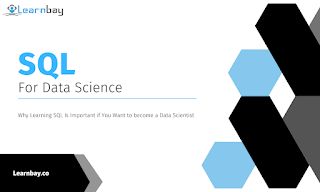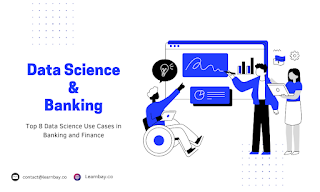Why Learning SQL Is Important if You Want to become a Data Scientist
Although machine learning and artificial intelligence (AI) may be the talk of the tech world, the most crucial skill in the data science sector is really much older—nearly 50 years old! SQL remains the most crucial language for data work, notwithstanding its age.
How has a language five decades old remained so relevant in the quickly evolving, ever-changing field of data science? We'll get there, but first, let's address a more important query:
Explaining SQL
A particular class of computer language known as a structured query language, or SQL, is created to make it easier to interface with databases. The 1970s saw its initial development for use with relational databases. That's still what SQL is used for today, despite extensive updates over the years: querying, updating, modifying, adding, and deleting data in relational databases.
(SQL can be pronounced either "sequel" or "SQL "; both pronunciations are common.)
SQL is frequently used in conjunction with classical programming languages like Python or R while performing data science work.
A data scientist may create a SQL query to extract particular data from a company database based on predefined criteria. After that, they can use the dataset their SQL query retrieved to conduct more in-depth research utilizing their knowledge of Python or R. Join the best data science course in Bangalore and learn to utilize SQL for data science projects.
The foundation of many different database management systems utilized today is SQL. Although SQL is an open-source language, businesses like Microsoft have created "dialects" to be used with their own proprietary SQL database systems, such as Microsoft SQL Server.
Why should you learn SQL For Data Science?
SQL databases are everywhere.
Almost every business on the planet uses a database to store its data. And the majority of such databases were created utilizing SQL-based technology.
Oracle, MySQL, Microsoft SQL Server, and PostgreSQL are the four most widely used database management systems in the world, according to Statista. Since all four systems rely on SQL, anyone using them would profit from knowing SQL.
In fact, only two (MongoDB and Redis) of the top 10 most widely used database management systems are not SQL-based. However, because SQL is so widely used, solutions have been developed that make it possible to use SQL on both database technologies.
In conclusion? Your business (or one in the future) has a database. You must be able to query the database if you want to work in the data industry.
A fair likelihood exists that you'll require SQL abilities to do that. Even if your organization is one of the select few that employs a non-SQL-based database management system, your SQL skills may still be helpful.
Instead of leaving, they are transferring to the cloud.
SQL is unquestionably outdated and not sexual in any way. Bootcamps don't advertise in glitzy magazines that they will teach you SQL. However, as was already noted, practically all businesses on the planet employ databases based on SQL.
SQL is being included in the upcoming crop of database systems, so it's far from going away. For instance, due to the rising demand for cloud databases, cloud-based SQL database solutions such as Microsoft's Azure SQL Database, Google's Cloud SQL, and others are increasing everywhere.
Despite being an older technology, relational databases have established themselves. Most businesses rely substantially on their SQL databases, so they aren't interested in fixing a working system. That implies that SQL expertise will remain in demand for a long time.
Employers demand you know SQL.
Regarding the first two justifications, you don't have to believe me. Look at job listings for positions like "data analyst" or "data engineer" and check how many include SQL if you have doubts about the value of SQL knowledge.
The demand for SQL expertise is high for practically all positions with "data" in the title. And more often than any other technological expertise, SQL is required for entry-level occupations like data analysis (including Python, R, machine learning, and so on).
In fact, for many data jobs, knowledge of SQL is the sole technical competency needed or the only technical competency assessed during the interview process, along with some familiarity with spreadsheets.
SQL is probably needed for more specialized roles as well. For instance, SQL is frequently listed as a required ability for data engineering employment. At the time of this writing, SQL has been listed in more than 70% of the open "data engineer" positions on Indeed.
How to learn SQL?
Therefore, learning SQL is essential if you want to work with data. How exactly do you go about learning it?
Learn SQL in a variety of methods. Additionally, no one strategy will work for everyone, despite what some marketers may claim.
Some people choose free resources, such as the SQL training offered by freeCodeCamp. In contrast, others prefer interactive courses and still prefer to attend a university.
You should take into account the following factors when selecting a platform:
Financial situation - Do you want something for nothing? Are you prepared to make a small investment in the best learning environment? Are you willing to spend a lot of money on a college degree?
Time - What amount of time do you have to learn? When can you start studying? The time commitments for various learning platforms and solutions vary, and some call for a full-time commitment.
Learning Preferences - What kind of learner are you? Do you learn best by doing? You might want to seek a platform that allows you to create and execute SQL queries. Videos help you learn better, right? You might want to choose courses with video lectures. Does it help you to learn alongside others?
Conclusion
You can always try out a variety of platforms and strategies if you're unsure of one that is best for you. Even paid platforms frequently provide a free trial, a free tier, or at the very least, a sample lesson or two that you may look at to determine if the learning style is right for you. You can never ignore learning SQL if you want to become a data scientist or analyst. So, get started with Learnbay’s data science training in Bangalore, and become a pro-SQL expert.




Comments
Post a Comment